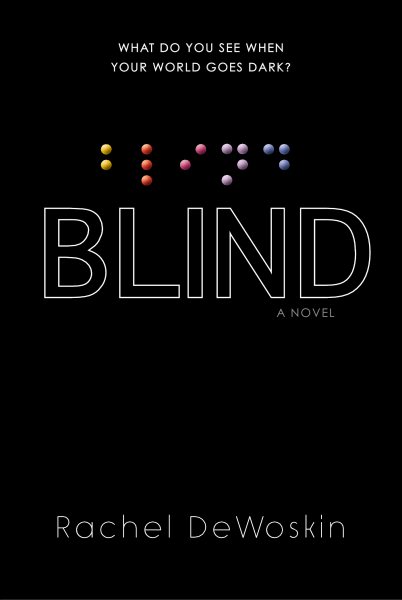
Rachel DeWoskin‘s Blind feels raw, disorienting, and desperate. Emma’s emotional ups and downs are chaotic and her long slog through the darkness (both literal and spiritual) envelopes everyone in her life, including the reader in its manic energy. Over the course of Blind, small insights and life lessons, such as:
we all contain dozens of versions of ourselves, and it’s only the lucky ones among us who get to try out being more than one (193);
even thought being different is the only way we can define ourselves against each other, it still sucks (201);
everyone acts like reality is unmanageable, which it is, maybe, but putting sugar all over it is also terrifying. Because people, no matter how young, sense both what’s there and that they’re being deceived about it (311);
if I’m going to live with any of what’s happened to me, . . . I have to remember everything as clearly as I can (325);
maybe every minute is a choice I make to be alive for that minute. And the next and the next (341);
because maybe the whole point of being a good human being is trying to imagine – for real – what it feels like to be someone else (373);
come to Emma gradually; where they add up and the book really gains strength is in the final section. By the end of Emma’s sophomore year, she’s truly accepted that just because life has altered who she thought she was going to be, this new “Emma” and the life that’s stretched out in front of her, is absolutely worth living – fearlessly, wholeheartedly and without shame or fear.
- Posted by Cori

